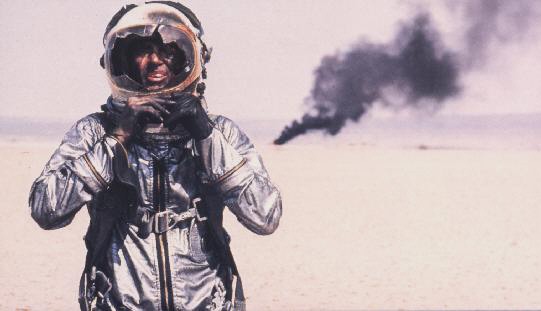
A+
Directed by Kiyoshi Kurosawa
"The Cure" is a truly outstanding thriller/horror film from a truly outstanding director, Kiyoshi Kurosawa, whose film credits include such gems as "Bright Future" and the recent "Tokyo Sonata." "The Cure" is, in my opinion, probably Kuroawa's most fully realized work, as it displays all of his strengths as a filmmaker in stunning display, resulting in a pitch perfect, deeply intelligent film that blurs the boundaries between thriller and psycho-horror.
Director Kenichi Takabe, a detective in Tokyo, is investigating a string of seemingly related murders commited by unrelated perpetrators for no apparent reasons. The only common element linking the murders are brief conversations they had with a mysterious young man, a fact discovered by Takabe which puts him in dangerous proximity to forces he may not be ready to deal with...or even comprehend. (Sorry, I had to.)
Any more hashing out of the plot details would probably ruin all of part of the film so I'll just skip right ahead to praising it instead. Like most Kurosawa movies, "The Cure" is extremely obligue in the way it tells its story, requiring that the viewer figure out the ending on their own or, as I did, via the help of IMDB's message boards. When you finally do figure out what's going on in "The Cure," the revelation is satisfying and powerful all at once, the rarest of feelings when it comes to film endings. Kurosawa is an extremely talented filmmaker and script writer and his ability to weave together an intriguing story that still makes sense and delivers the goods in its third act is basically unparralled by his contemporaries, simply because he possesses the unique ability to construct stories which can only be resolved through not only actively paying attention to the film itself but also reflecting on it for hours, maybe even days, afterwards. In this respect, a film like "The Cure" is a puzzle that is far more enjoyable than films like "Memento," which presents a puzzle that, although enjoyable is a bit too easy to figure out, and "Mullhollnd Drive," which seems to be complicated just for the sake of it.
